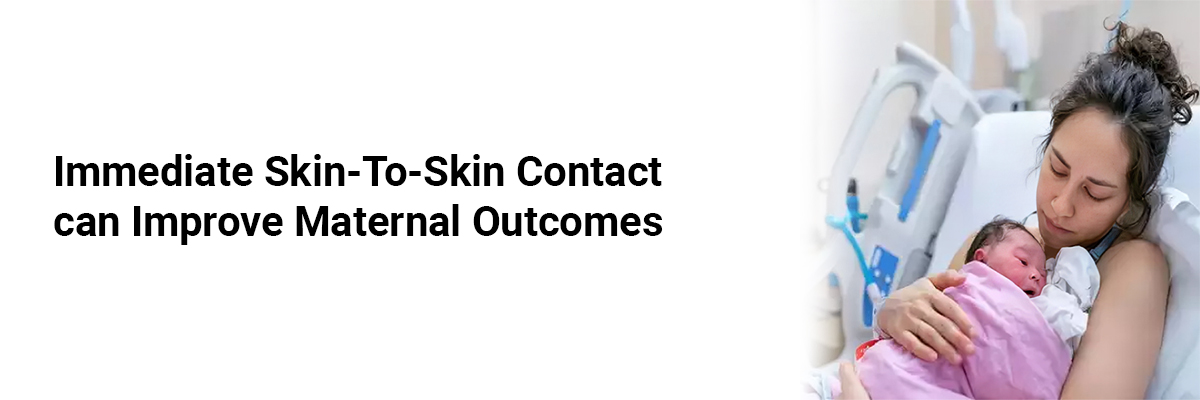
Immediate skin-to-skin contact can improve maternal outcomes
A new study aimed to evaluate postpartum hemorrhage (PPH) morbidity rates among patients who did and did not undergo immediate skin-to-skin contact (SSC).
This was a retrospective cohort analysis conducted on all non-anomalous, term singleton vaginal births at a Level IV center over two years. Patients with COVID-19 were excluded. Immediate SSC was defined as at least 60 minutes of direct skin contact initiated within 10 minutes of birth. The primary outcome was a composite measure of maternal morbidity related to PPH – compared between those with and without immediate SSC.
Overall, 3,520 deliveries met the inclusion criteria. Of these, 2,428 (55.5%) received immediate SSC, while 1,028 (31.0%) did not. It was noted that immediate SSC was associated with a lower composite morbidity rate and reductions in blood loss ≥1,000 mL, additional uterotonic use, and mechanical tamponade application. Additionally, immediate SSC was linked to reduced blood loss and shorter third-stage labor duration. Meanwhile, transfusion rates or hematocrit changes post-delivery showed no significant differences based on immediate SSC.
Immediate SSC following term vaginal deliveries was significantly associated with reduced PPH rates. Promoting early maternal-neonatal contact may enhance SSC adoption and serve as an accessible intervention to mitigate PPH risks in both high- and low-resource settings. The observed reduction in atony-related interventions and blood loss suggests SSC may improve maternal outcomes.
Source: Wiley RL, Ghose I, Canfield DR, Sarker MR, Mendez‐Figueroa H, Chauhan S. International J Gynec & Obst. 2025.















Please login to comment on this article